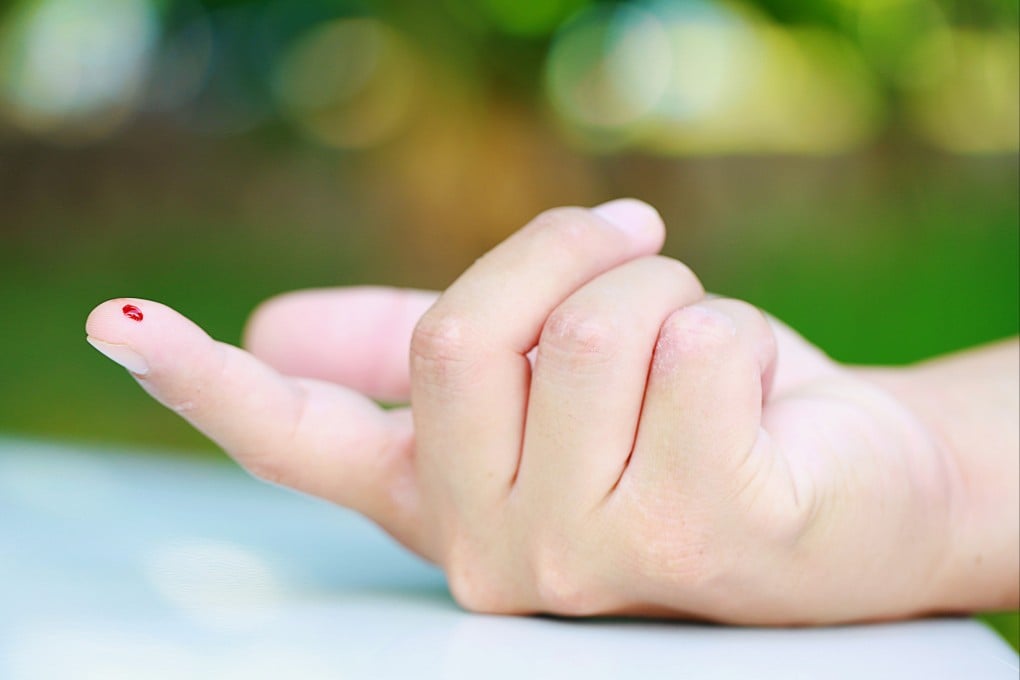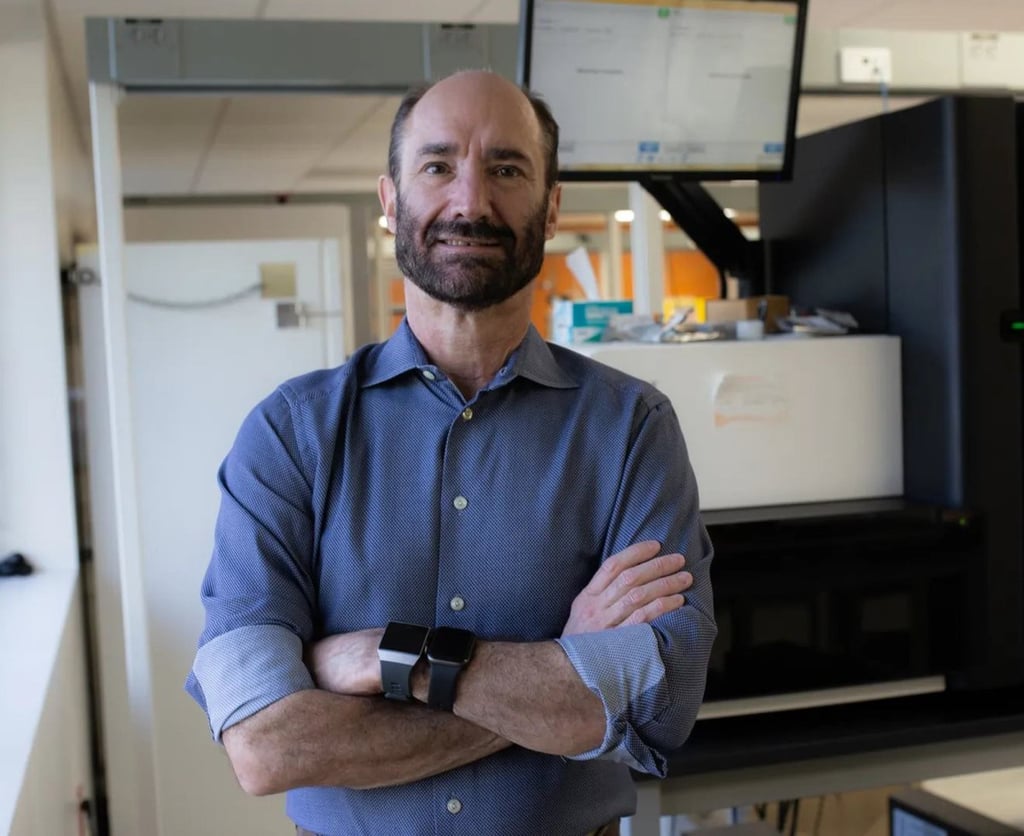‘It’s Theranos that works’: how a finger-prick blood test could reveal data to help you take up healthier habits
- A geneticist and his team were able to get nearly the same results as a typical blood draw from finger pricking, similar to the blood sugar test diabetics do
- Unlike the discredited Theranos, the process uses a conventional testing lab to analyse metabolism, the immune system, blood sugar and other measures of health

You could say Michael Snyder is obsessed with learning about the inner workings of his own body. The Stanford University geneticist once tracked himself as he developed diabetes.
Now, for a new paper, he took repeated blood samples every day for a week – 14 a day, 98 times in total. He used a new method he and his team developed, using a drop collected from a finger prick rather than vial after vial taken from the crook of his arm.
The study, published this month, showed Snyder and his colleagues were able to get nearly the same results as a typical blood draw from a sample 1,000 times smaller.
In addition to learning more about his own biology, Snyder thinks it offers a new way of tracking health measures and eventually might replace getting blood drawn at the local doctor’s office.

Such micro-sampling, he said, is convenient, can be done more frequently than an annual or semi-annual blood draw, and doesn’t require visiting a clinic with sick people.
“I think it’s going to take over the way we do health monitoring,” Snyder said.
